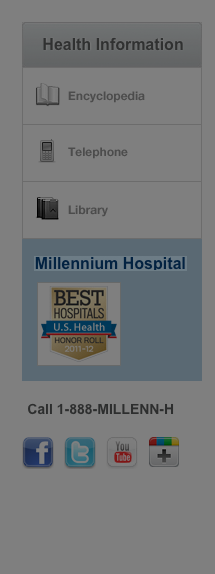COVID-19 antibody test
 Print-Friendly
Print-Friendly
SARS CoV-2 antibody test; COVID-19 serologic test; COVID-19 - past infection
This blood test shows if you have antibodies against the virus that causes COVID-19. Antibodies are proteins produced by the body in response to harmful substances, such as viruses and bacteria. Antibodies may help protect you from getting infected again (immune).
The COVID-19 antibody test is not used to diagnose a current infection with COVID-19. To test if you are currently infected, you will need a SARS-CoV-2 (or COVID-19) virus test.
I Would Like to Learn About:
How the Test is Performed
A blood sample is needed.
The blood sample will be sent to a laboratory for testing. The test can detect one or more types of antibodies to SARS-CoV-2, the virus that causes COVID-19.
How to Prepare for the Test
No special preparation is needed.
How the Test will Feel
When the needle is inserted to draw blood, some people feel moderate pain. Others feel only a prick or stinging. Afterward, there may be some throbbing or a slight bruise. This soon goes away.
Why the Test is Performed
The COVID-19 antibody test is used for the following:
- To see if you have COVID-19 antibodies, which indicates you had a past infection or vaccination.
- To help diagnose multisystem inflammatory syndrome, a rare complication from COVID-19
- To check the level of immunity within a population and estimate vaccine coverage
Normal Results
The test is considered normal when it is negative. If you test negative, you likely have not had COVID-19 in the past.
However, there are other reasons that may explain a negative test result.
- If you have recently been infected with COVID-19, antibodies may not yet be present, so you can still test negative.
- Some people infected with COVID-19 do not develop enough antibodies to be detected.
- If infection occurred a long time ago, there may not be enough antibodies to detect.
What Abnormal Results Mean
The test is considered abnormal when it is positive. This means you have antibodies to the virus that causes COVID-19. A positive test suggests:
- You may have been infected with SARS-CoV-2, the virus that causes COVID-19.
- You may have been infected with another virus from the same family of viruses (coronavirus). This is considered a false positive test for SARS-CoV-2.
- Because people vaccinated against SARS-CoV-2 commonly have positive antibody tests to the S (spike) protein, a positive antibody test does not always mean you were infected with SARS-CoV-2.
You may or may not have had symptoms at the time of the infection.
A positive result does not mean that you are immune to COVID-19. It is not certain if having these antibodies means that you are protected from future infections, or for how long the protection might last. Talk with your provider about what your test results mean.
If you tested positive and you have symptoms of COVID-19, you may need a diagnostic test to confirm an active infection with SARS-CoV-2. You should stay at home and take steps to protect others from getting COVID-19.
Related Information
References
Centers for Disease Control and Prevention website. Antibody testing. www.cdc.gov/coronavirus/2019-ncov/hcp/testing/antibody-tests-guidelines.html. Updated December 16, 2022. Accessed March 6, 2024.
Centers for Disease Control and Prevention website. COVID-19 Testing: What You Need to Know. www.cdc.gov/coronavirus/2019-ncov/symptoms-testing/testing.html#testing-for-antibodies. Updated September 25, 2023. Accessed March 6, 2024.
